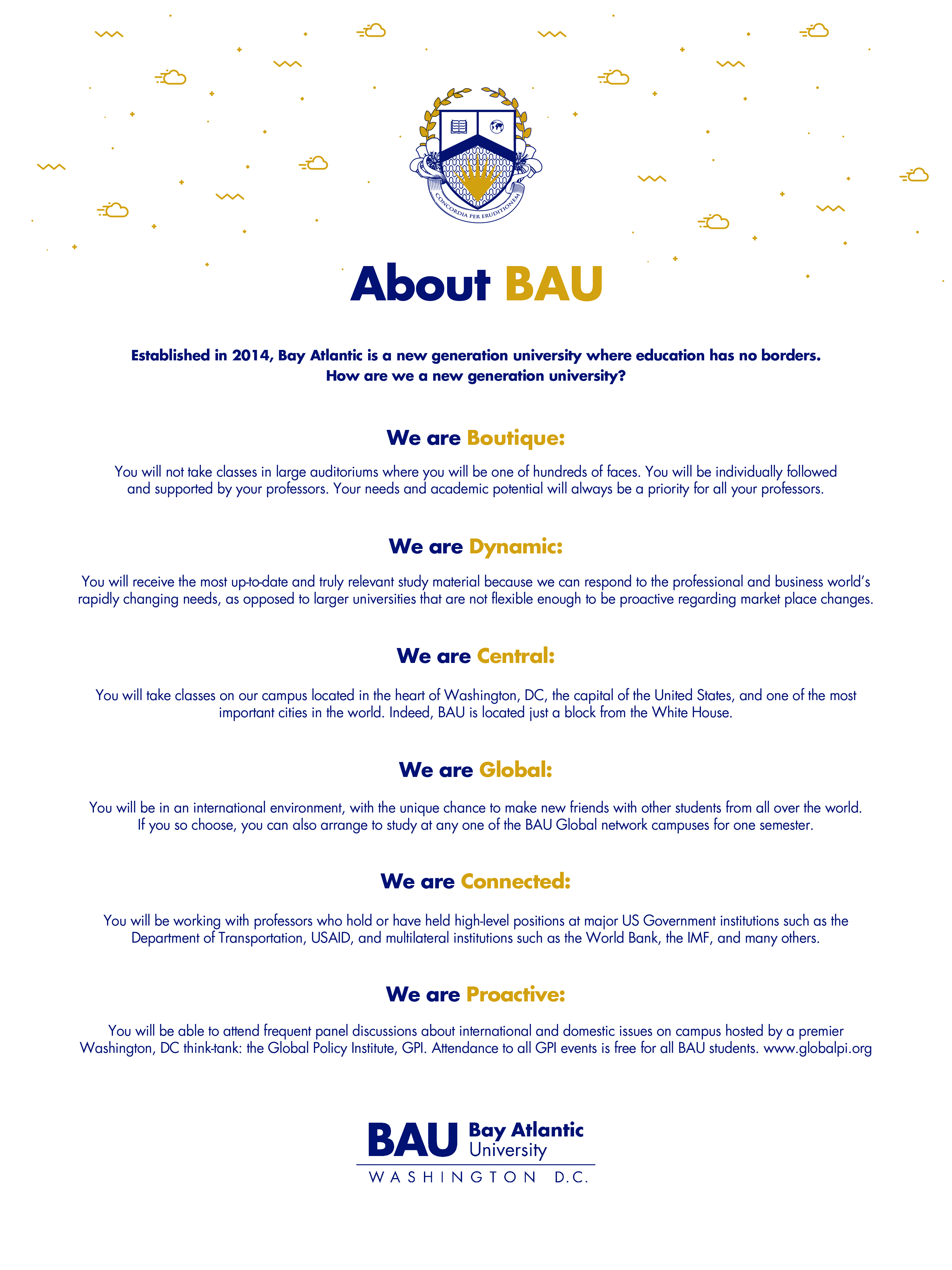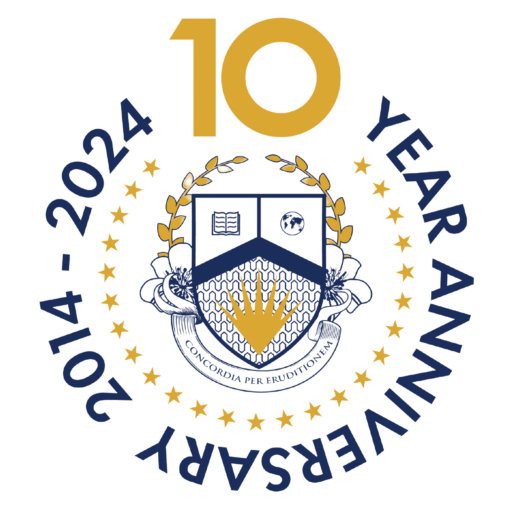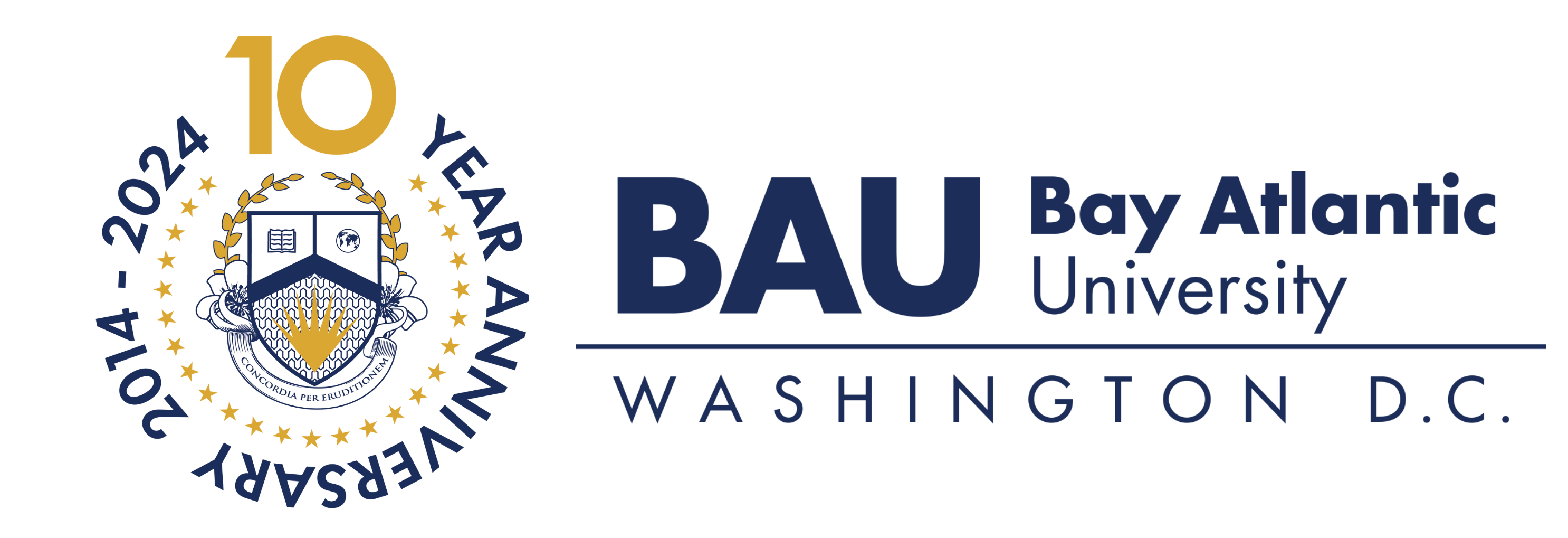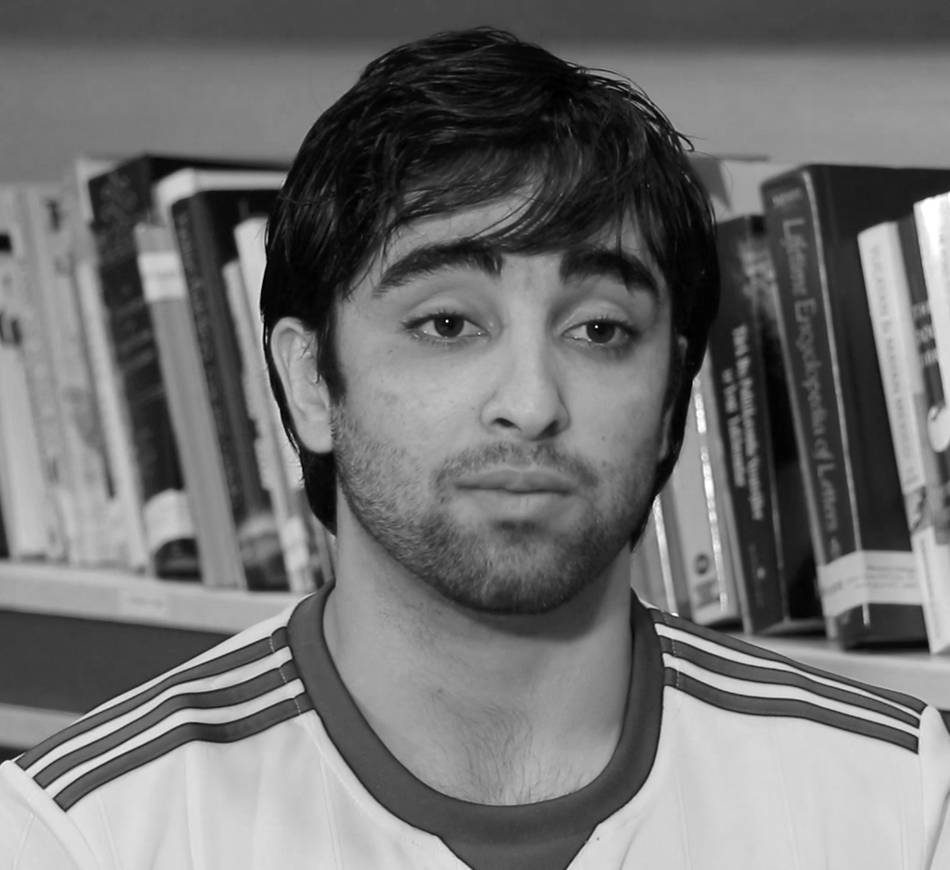Courses
Students must earn a total of 120 college credit hours to receive this degree. Of these credit hours, 60 credits are core courses, 42 general education credits, and 18 elective credits. Students must meet their core requirements as well as their general education requirements.
In addition, students must meet the following criteria:
- Students enrolled in the undergraduate program must maintain a Cumulative Grade Point Average (CGPA) of at least 2.0 out of 4.0 to qualify for the BA degree, to remain in good standing, and to graduate.
- The Maximum Time Frame (MTF) for completion of the bachelor’s program is 180 credit hours.
- An undergraduate student may transfer up to 90 credit hours earned at accredited institutions.
- No degree credit is received by an undergraduate for any failing grade (a grade less than D, or 1.00 out of 4.00 grade points).
ECONOMICS & FINANCE CORE REQUIREMENTS (20 Courses)
ACCT 112
Financial Accounting
3 Credits
The most important sources of information for analyzing an organization’s financial health are the balance sheet, the income statement, and the statement of cash flows. This course examines each of these documents in order to determine the operational, financial, and investment decisions that the firm has made and evaluates their outcomes.
ACCT 114
Managerial Accounting
3 Credits
The finances within an organization must first be understood to gain a better understanding of the business as a whole. Managerial accounting focuses on providing information to managers for use within the organization. This course will help to understand the essential financial components of businesses that are important for decision-making.
ECON 101
Introduction to Microeconomics
3 Credits
Microeconomics deals with the behavior of companies and individuals that determines the choices they make in the allocation of resources. This course examines the concepts of supply, demand, market equilibrium, and competition and the impact that external forces such as taxation, government policy, and globalization have on them.
ECON 111
Introduction to Macroeconomics
3 Credits
Macroeconomics deals with the total of all economic activity within a nation. This course examines such issues as economic growth, inflation, unemployment, savings, and investment to understand how these factors interact to impact the business cycle and overall national income.
ECON 221
Intermediate Microeconomics
3 Credits
PREREQUISITE: ECON 101 Building on the material covered in ECON 101, this course examines consumer behavior, production costs, and price and output analysis in both competitive and monopolistic market situations.
ECON 222
Intermediate Macroeconomics
3 Credits
PREREQUISITE: ECON 111 This course builds on the foundational principles of Macroeconomics to provide students with a deeper understanding of macroeconomic concepts and theories. The course provides tools of macroeconomics which are applied to the real economic policy issues. The course also examines topics such as economic growth, the monetary system, aggregate demand, and the Mundell-Fleming model to understand how macroeconomic theories are used to provide useful economic insights.
ECON 251
International Economics
3 Credits
PREREQUISITE: ECON 111 Traditionally the economic relationship between nations was based on trade, but today the situation is complicated by financial (exchange rates, monetary and fiscal policies), political (protectionism, tariffs), and social (unemployment, migration) issues associated with trade. This course examines the economic impact of those factors on the economies of various nations.
ECON 437
Econometrics I
3 Credits
PREREQUISITE: MATH 110 Alfred Marshall (1842-1924) was a pioneer in applying mathematical rigor to economics; Econometrics applies statistical methods to empirical data with the goal of determining relationships and trends. Using linear regression and other statistical tools, this course compares theoretical forecasts of economic parameters with the real-world data to determine the predictive value of the models.
ECON 479
Health Care Economics
3 Credits
PREREQUISITE: ECON 101 Health policy is examined from an economic perspective. Basic economic theories and their relationships to the structure and function of the US health care system are explored. Alternative health care systems and health care reforms are also evaluated.
ECON 481
Education and Economic Development
3 Credits
PREREQUISITE: ECON 101 & ECON 111 This course is an introduction to the economics of education. The central aim of the course is to assist students in viewing the education “industry” and its educational processes through the perspective of economics. Several tools of economic analysis are used to address the links between education and economic growth, consumption, investment, employment, and equity. Students are afforded an opportunity to examine an important issue related to the economics of education, which helps them to become more knowledgeable about the economics of education literature and learn how to apply the tools of economic analysis to an important policy issue.
ENGL 324
Technical Writing and Presentation Skills for Economics and Finance
3 Credits
PREREQUISITE: ENGL 123 Economists and finance managers communicate a great deal. Many are called upon to make presentations to conferences, to write opinion pieces for newspapers, and appear on television to analyze current events. In addition, they compose internal memos and reports that influence the direction of their organizations. This course is designed to familiarize students with the current communication trends in all of those areas. Students will have the opportunity to develop their communication skills by learning the jargon of the discipline, focusing on real- world topics, videoing their presentations, and having their work product reviewed by peers.
The purpose of this course is to open awareness to the complexity of ethical decision-making and prepare students to make choices from a standpoint of ethical consciousness. Students will learn to identify ethical problems in their program of study, assess the obligations of stakeholders, formulate argumentsforthose obligations, and propose feasible solutions to ethical problems. Diversity competence will also be stressed. Assignments, activities, and exams will cultivate reflection, analysis, creativity, and empowerment.
FINC 221
Introduction to Financial Management
3 Credits
In order to maximize future profits, firms need to make a number of interrelated strategic financial decisions. This course examines the impact of decisions in corporate capitalization (debt vs. equity), operations (fixed-asset investments vs. outsourcing), budgeting of financial resources, and monitoring of assets and liabilities on the profitability of the firm.
FINC 224
Corporate Finance I
3 Credits
PREREQUISITE: ECON 101 & ECON 111 This is the first course of two consecutive corporate finance courses in the second year which aims to provide the student with the basic tools for making financial decisions. This course will introduce the student to basic financial theory and concepts of corporate finance. This course will also ensure an understanding of relationship between financial theory and its practices. It will cover some of the theory and practice of decision-making within the corporation. More of the emphasis will be on financial valuation, capital budgeting and cash flow analysis.
FINC 225
Corporate Finance II
3 Credits
PREREQUISITE: FINC 224 The purpose of this course is to introduce basic concepts of financial management with special attention to corporate financial decisions. The course will focus on (1) the capital budgeting process, (2) dividend and capital structure policies of the firm, (3) the basics of risk management, (4) how derivatives can be used to hedge financial risks, (5) the rationale for mergers, different types of mergers, and merger analysis, (6) the pros and cons of the hybrids from the standpoints of both issuers and investors, how to determine when to use them, and the factors that affect their values.
FINC 331
Financial Analysis
3 Credits
PREREQUISITE: FINC 221 An analysis of a firm’s financial documents (Balance Sheet, Income Statement, Retaining Earnings and Statement of Cash Flows) can provide detailed insight into its financial health. Using this data as a platform, the course explores the use of trend analysis and financial models for financial planning to achieve greater stability, growth, and profitability insofar as share price increases.
MATH 110
Introduction to Statistics
3 Credits
PREREQUISITE: MATH104 This is an introductory statistics course that presents basic statistical concepts and methods in a manner that emphasizes understanding the principles of data collection and analysis rather than theory. Much of the course will be devoted to how statistics affect the business world.
MATH 131
Calculus 1
3 Credits
PREREQUISITE: MATH 104 This is an introductory course to provide students with an introduction to Calculus. The course covers topics such as rules of differentiation, the chain rule and implicit differentiation; derivatives of trigonometric, exponential, logarithmic, and inverse trigonometric functions; the Mean Value theorem; and indeterminate forms and L’Hopital’s rule.
MATH 225
Spreadsheet Applications for Business, Accounting, and Economics
3 Credits
PREREQUISITE: MATH 131 Spreadsheets are a valuable tool for business, economic, and financial analysis. This course covers a wide range of spreadsheet operations from basic data manipulation, to the use of formulas and functions, table and graphical representation of data, regression, and data analysis.
MATH 335
Business Analytics
3 Credits
PREREQUISITE: MATH 110 Business Analytics uses data from past performance and statistical methods to inform data-driven decision making. This course explores how big data analysis and predictive modeling can drive strategic decision making for enterprise optimization and government policy decisions.
ECONOMICS & FINANCE ELECTIVES (6 Courses)
ECON 315
Political Economy
3 Credits
PREREQUISITE: ECON 111 This course presents the theories and methodologies of studying the political economy alongside descriptions of relevant institutions. This course helps students understand and analyze the characteristics of domestic and global businesses, government policies, and inter-state relations and their effects on individuals, societies, and environments. The course will focus on the contemporary structure of the political economy and will discuss controversial topics, including different theories about optimal economic and social development in both mature and emerging economies.
ECON 336
Game Theory
3 Credits
PREREQUISITE: ECON 101 & ECON 111 The application of game theory to economics provides an insight into the decisions and choices that people make. This course will explore concepts such as Pareto Optimums and Nash Equilibriums that systematize the analysis of economic decision making. Basic theorems, selection strategy, rectangular games and solution techniques will be provided.
ECON 353
Globalization & The World Economy
3 Credits
PREREQUISITE: ECON 101 & ECON 111 This course seeks to examine the historic development of globalization and the many contemporary understandings of what exactly globalization means for the world, with a focus on economic development. The concept of globalization is a contested one, and in this course, students will learn about the different ideas and conceptualizations of globalization. The course will address the major debates relating to economic interdependence, development and growth, the patterns of international trade and investment, global financial markets, and the role of major multilateral political and economic institutions such as the UN, the World Bank and IMF in promoting globalization.
ECON 371
The Development of Economic Thought
3 Credits
PREREQUISITE: ECON 101 & ECON 111 The systematic analysis of the economy and the factors that affect it only dates back 250 years. This course explores the beginnings of that analysis, and the social, political, and technological factors that have shaped the thinking of economists over the past two centuries and have resulted in our current understanding of economics.
ECON 432
Money and Markets
3 Credits
PREREQUISITE: ECON 101 & ECON 111 Monetary policy drives the allocation of funds to the various financial markets for bonds, stocks, and commodities; this allocation, in turn, has a determining effect on many economic parameters. This course examines how monetary policy (money supply, interest rate targets, Federal Reserve regulations) impacts GDP growth, interest rates, and inflation, and the role that monetary policy has played in recent asset price bubbles and financial crises.
ECON 435
Public Finance and the Economy
3 Credits
PREREQUISITE: ECON 101 & ECON 111 Although they may disagree about appropriate government policies, all economists would agree that those policies have an immense influence on the economy. This course examines how the methods that governments use to finance themselves (taxes, tariffs, debt) and the expenditures that they make (social spending, capital investment, and subsidies) can impact and distort a totally free-market economy.
ECON 438
Econometrics II
3 Credits
PREREQUISITE: ECON 437 The course deals with econometric methods and applications designed for the analysis of cross-section and panel data models. It can be viewed as a course in microeconometrics, since we cover methods that are most often used in empirical microeconomic research. The main topics covered are maximum likelihood & GMM methods, panel data models, semiparametric and nonparametric methods, limited dependent variable models, and qualitative response models. Single as well as simultaneous equations models will be treated. Important topical applications will be treated.
ECON 440
Economics of International Development
3 Credits
PREREQUISITE: ECON 101 & ECON 111 Developing countries have followed various paths to achieve a modern economy; some efforts (e.g. Singapore) have been extremely successful, while others (e.g. Zimbabwe) have been abject failures. This course examines those pathways to discover the institutions, policies, and practices that have determined the particular economic outcomes in various developing countries.
ECON 456
International Financial Crises
3 Credits
PREREQUISITE: ECON 101 & ECON 111 For the past 25 years, the world seems to have lurched from one financial crisis to the next without respite. This course examines the causes and effects of some of the most dramatic past and current international financial crises: the Asian economic crisis of 1997, the Mexican economic crisis of 1982, Japan's Lost Decade, the collapse of the Russian ruble, the Great Recession, the Eurozone crisis, the Italian bank crisis, and Brexit.
ECON 473
Keynes vs. Friedman
3 Credits
PREREQUISITE: ECON 101 & ECON 111 The last 100 years have seen a grand historical debate between two schools of economic thought represented by John Maynard Keynes and Milton Friedman. This course examines the origin of both schools and the cyclic ebb and flow between them: at first one side dominates but then fails to explain unprecedented economic circumstances; as a consequence, the other side becomes dominant, only to suffer the same fate.
ECON 480
Labor Economics
3 Credits
PREREQUISITE: ECON 101 This course is about the study of labor markets, business-employment relations, and the different experiences of various workers on the basis of gender, race, ethnicity, etc. Theories of labor supply, labor demand and wage determination are presented and empirical evidence on them is examined. Further topics include the determinants of wage differentials, the role of unions in wage determination, the impact of minimum wage legislation, human capital effects on employment and salaries, the economics of immigration, and how labor market discrimination affects wages and employment opportunities.
FINC 222
Financial Markets and Institutions
3 Credits
PREREQUISITE: FINC 221 This course introduces financial institutions and dynamics between the public and private sectors. It begins with an overview of the role of financial intermediation. Student learn of inherent risks and fragilities of international financial institutions, along with the safeguards that have been established to mitigate them, both nationally and internationally. It reviews the development of and interaction between international and domestic financial markets, as well as the evolving relationship between the public and private sectors.
FINC 373
Monetary Theory and Policy
3 Credits
PREREQUISITE: ECON 101 & ECON 111 The objective of this course is giving students the understanding and the intuition regarding the possible monetary policy designs.
FINC 421
Investment Strategies
3 Credits
PREREQUISITE: FINC 221 The course is divided into two parts. The first part is an introduction to organization and properties of international and national security markets such as NYSE, SEC, OTC and ISE (Istanbul Stock Exchange). The first part also covers short sales and margin transactions in ISE, capital increase and basic information about stock splits. The second part of the course begins with fundamental analysis, effective use of financial ratios, then puts emphasis on CAPM, APT, portfolio theory and firm valuation models. The main objective of this course is to study fundamental concepts of investment theory in financial markets and to analyze the financial statements of firms.
FINC 431
Derivative Markets
3 Credits
PREREQUISITE: FINC 221 The main objective of this course is to provide students a basic understanding of derivative-related financial instruments (forwards, futures and options) and their use in investment and corporate financial management.
FINC 432
Financial Markets
3 Credits
PREREQUISITE: FINC 221 This course focuses on the role that financial markets play in business and in the economy, and also provides an understanding of the underlying institutions that either help financial markets work well or that interfere with the efficient performance of these markets. Topics include the valuation of various financial assets and an introduction to basic derivative markets (futures, forward, options). This course analyzes the most important factors leading to financial crises and following supervisory and regulatory responses.
FINC 455
International Finance
3 Credits
PREREQUISITE: FINC 221 In the age of globalization, an in-depth understanding of the international financial arena is critical to the operations of multinational corporations. This course explores various risk factors associated with foreign direct investment (FDI) activities: foreign exchange risk, political risk, and operational risk. In addition, the course examines how international capital markets, foreign government FDI regulations, international central bank policies, purchasing power parity (PPP), and Islamic banking impact FDI decisions.
MGMT 325
Operations Management
3 Credits
PREREQUISITE: MATH 110 Operations Management involves those aspects of your firm that provide the goods or services in your firm’s value proposition to your targeted market. As such, operations will be decisive in determining the long-term viability of your firm’s business model. This fact has become even clearer in recent years as competition has increased with more globalization and improved information technology. By integrating operations successfully into their business models, firms such as Dell, Toyota, and Wal-Mart have shown that good operations make good business sense. The objective of this course is to provide you with an understanding of Operations Management and the role that it plays within an organization. By the end of the course, you should have developed an appreciation for the challenges in providing world- class products and services and the ability to use some analytical tools and conceptual frameworks to guide your thinking about operations.
















